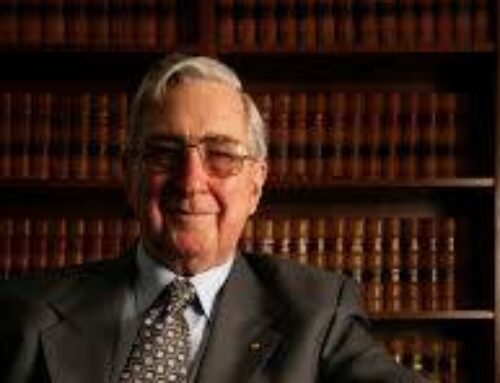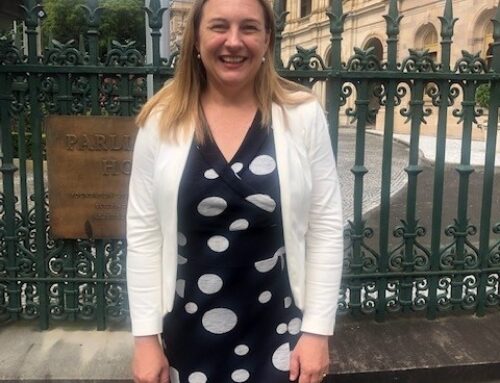Last night, disability advocate, elite athlete, television and radio personality Dylan Alcott was named the 2022 Australian of the Year.
He will undoubtedly be a popular choice. He is a favourite amongst sports fans, music fans and people effected by disability. Dylan’s story is, apart from a period of adolescent depression, almost entirely joyful.

As a personal injury lawyer, I regularly tell my clients that my job is to be a glass half empty person. This is not my natural state of being. I would rather look to the positives. However, we have an ethical duty to ensure that our client’s interests are protected. We need to investigate the potential costs and losses of an injury. We need to explain to insurers the challenges of finding and maintaining work with sympathetic employers who can and will accommodate disabilities and the prospect that the work will be less remunerative and/or secure than the work being performed before the injury. We need to investigate the availability of suitable work and the costs of retraining. We need to investigate the costs of maximising our client’s physical, mental and social function when they are living with a disability.
Although money is certainly not the full picture, removing the financial strain of an important ingredient to adapting to a new way of life after an injury.
I always hope my clients can find even a modicum of the happiness described by Dylan in his speech last night. I tend to tell my clients at the conclusion of the claim that we have prepared for the worst but we always hope for the best.
Here are the 10 things I loved most about Dylan Alcott’s speech last night:-
- Humour – Dylan reminded us that “foot in mouth” over disabilities are fine. We do not need to pretend that disabilities do not exist to be inclusive.
- Genuine humility – Dylan paid tribute to people who are fighting other, more common, types of battles every day with their work including front line health workers during a pandemic. He also acknowledged his mentors and powerful public role models including Kurt Fearnley and Stella Young.
- Honesty – Although Dylan spoke positively about his life experience, he acknowledged his own challenges with being different and not seeing anyone who looked like him portrayed in the mainstream culture.
- Family – Not everyone living with a disability or who suffers a life changing injury has emotional support. As lawyers, we can seek out financial compensation but we cannot offer the strong emotional support that comes from family and friends. Dylan acknowledged the privilege that he has enjoyed coming from a strong family and enjoying supportive relationships throughout his life.
- Positivity –
“I love my disability. It is the best thing that ever happened to me… I am so thankful for the life I get to live… You could not pay me enough money to ever do it (stem cell research to potentially reverse his disability)”
- Recognition – Dylan checked his privilege. He recognised that not everyone with a disability gets to live the joyous life he enjoys. He also acknowledged that not all disabilities are physical. Not all advocates are so aware that their lived experience is only one of the experiences of people living with a disability.
- Agency – A trap for many well meaning people (myself included) is to assume we know what someone with a disability wants or needs. Dylan admitted that he would not pretend to advise another person with a disability what they need. Instead he called upon the able bodied to speak to people with disabilities to find out what they each need in order to live a full life.
- Empowerment – Although Dylan did not expressly cite the statistics, rentention of staff with disabilities is overwhelmingly higher than the norm. He warned us all that people with disabilities were ready to come and take our jobs. In a time of chronic labour shortages, all employers would be remiss to assume that people with disabilities would be unable to perform a job without assessing the abilities of a specific candidate and checking the inherent requirements of the job.
- Representation – In calling for people with disabilities to be represented in every aspect of our society, Dylan reminded us that we would not just be enriching the lives of the people with disabilities. We would be enriching the community more broadly. Diverse abilities bring diverse superpowers.
- Focus – Dylan eschewed the “after party” and enjoying a beer with Grace Tame as he is still competing in the Australian Open. Although he was at pains to point out that his sport is less important to him than his advocacy work, he reminded everyone that he has the same focus on winning that we expect from all our elite athletes. To expect anything else would be to diminish his extraordinary sporting achievements.

Well done Dylan Alcott. You will be an outstanding Australian of the Year.

![Medical Records and Claims for Personal Injuries – Maher v Russell [2022] ACTSC 297](https://karelawyers.com.au/wp-content/uploads/2023/02/files.jpg)



